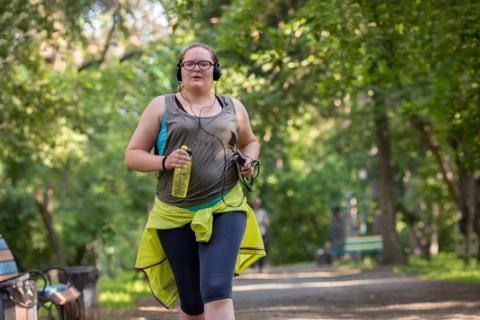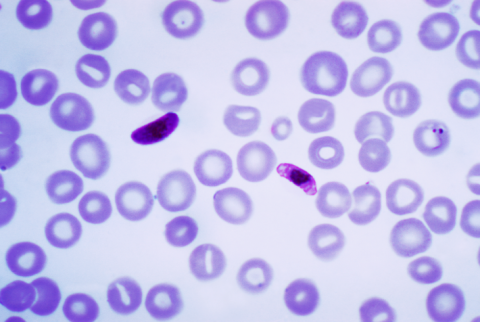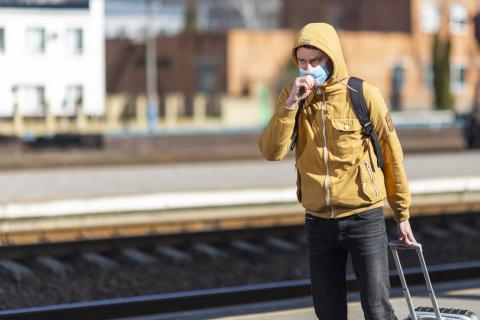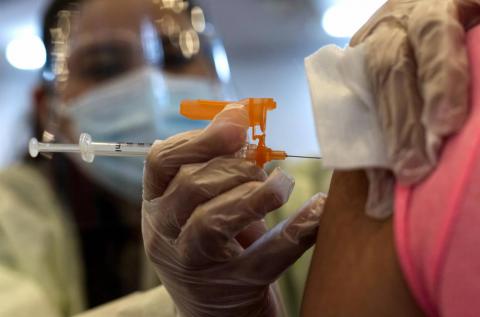University of Alcalá
If you are the contact person for this centre and you wish to make any changes, please contact us.
Specialist in Endocrinology and Gender Identity and honorary professor at the University of Alcalá
Professor of Applied Physics and Honorary Research Professor at the University of Alcalá
Professor of Pharmacology at the University of Alcalá
Astrobiologist and lecturer of Biochemistry at the University of Alcalá
Professor of Parasitology at the University of Alcalá (UAH) and director of the Master's Degree in Humanitarian Health Action (UAH-Doctors of the World)
President of the Spanish Glaucoma Society (SEG), head of the ophthalmology department at the Ramón y Cajal Hospital and professor of ophthalmology at the University of Alcalá de Henares (UAH).
Assistant Professor, PhD, Public Health and Epidemiology Research Group, University of Alcalá
Doctor of Health Sciences from the University of Alcalá (UAH), external member of the UAH's Food, Nutrition and Public Health Strategies research group, and lecturer at UNIR and CUNIMAD
Assistant professor of Physical and Sports Education and researcher in Epidemiology and Public Health at the University of Alcalá
Head of International Relations at the Spanish Society of Public Health and Healthcare Administration (SESPAS), organiser of the 2026 European Public Health Conference (EUPHA), Ikerbasque Research Professor at the Basque Centre for Climate Change (BC3) and professor and researcher at the universities of Alcalá and Johns Hopkins

A Japanese research team has announced in Nature Communications that it found uracil, a component necessary to form RNA, in a small sample collected from the asteroid Ryugu. According to the authors, these results indicate that these molecules of prebiotic interest were commonly formed on asteroids like Ryugu, and reached the early Earth with the impact of these bodies. The sample was collected by the Japan Aerospace Exploration Agency's Hayabusa2 robotic spacecraft, which returned to Earth in December 2020.

Obesity is a growing public health problem for the entire planet. According to the 2023 Obesity Atlas published this week by the World Obesity Federation, 51% of the world's population will be overweight or obese (more than 4 billion people) by 2035, up from 38% today. At a briefing organised by SMC Spain ahead of World Obesity Day on 4 March, two experts discussed the role that drugs can play in combating a disease whose roots are social and linked to inequality.

The Centre for the Coordination of Alerts and Health Emergencies (CCAES) reported yesterday that last February Germany reported two cases of dengue (one confirmed and one probable), along with four cases compatible with epidemiological links, in residents of Germany who had travelled to Ibiza during the incubation period. One of the potential vectors of dengue is the Aedes albopictus mosquito, which was first detected in Ibiza in 2014. According to the CCAES, the risk of new autochthonous cases appearing in Ibiza, "at this time of low vector activity, is considered low".

In the last few days, several media have published that the end of the obligatory use of face masks in public transport is near. According to today's Vozpópuli, the Alerts Committee is expected to approve the change from compulsory to recommended use next week.

New estimates published in Science claim that under the most optimistic scenarios, glaciers will globally lose much more mass and contribute more to sea level rise than current estimates, including those published in the latest IPCC report.

The Minister of Health, Carolina Darias, announced today at a press conference that in view of the increase in cases of covid-19 in China following the end of the covid zero policy, Spanish airports are going to require passengers arriving from that country to take a negative test for covid-19 or a complete vaccination schedule. The first flight affected by health control measures will arrive at Adolfo Suárez Madrid-Barajas Airport at 18:00 on 31 December.

An experimental malaria vaccine has shown protection for at least six months, according to a clinical trial in 112 adults in Burkina Faso. The results are published today in the journal Science Translational Medicine.

The widening gap between disposable income and house prices is strongly correlated with poor health, preventable deaths and suicide, according to a study using data from 27 countries, including Spain, between 2000 and 2019. The research is published in the Journal of Epidemiology & Community Health.

Research published in the journal Nature Medicine examines the health consequences of covid-19 reinfections.

A panel of 386 academics, led by ISGlobal (Barcelona), has established a series of recommendations to end the threat of covid-19 following the Delphi method, a prospective technique based on the search for consensus among a group of experts. The results are published in the journal Nature.